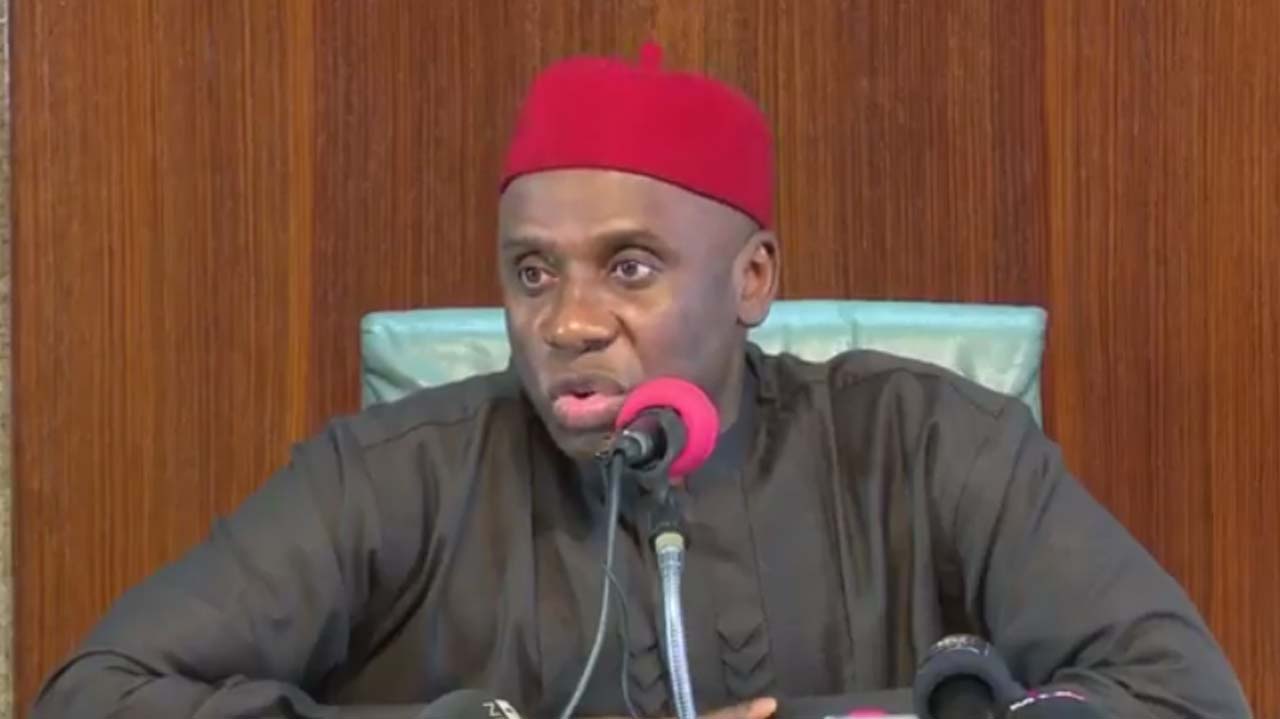Transport Minister Rotimi Amaechi has again warned Nigerian politicians now settling in Abuja, leaving their states devastated.
What he claimed he foresaw gathering in the 36 states would not favor the ruling APC and the opposition PDP.
“The only thing you will hear of Nigeria is that you should come to Abuja; that it is a fine city. But Abuja does not feed anybody,” he told the Daily Trust in an exclusive interview.
“If we are not careful, we will be chased out of Abuja.”
The National Daily has been reporting on how banditry is already making Nigeria’s federal capital difficult to govern. This further aggravates the River former governor’s fears.
He was still defending the infrastructure drive of his principal President Muhammadu Buhari, citing Buhari’s reaction whenever his cabinet members visit countries like South Africa.
“The president would ask how we feel when we get to Cape Town. You will be ashamed being a Nigerian because the political elites have burnt our resources and not able to put infrastructures on ground,” he said.
According to him, the elite class in Nigeria don’t live in their states of origin again.
“They have all run away. Everybody is here in Abuja, which is protected because the president is here. One day, the boys will be courageous and we will be on the run.”
Amaechi and his boss have been big on borrowing from China to finance infrastructure across the nation, and he has been met with opposition from the National Assembly.
“If we don’t follow what the president is saying by not only diversifying the economy but also putting the necessary infrastructure in place, there will be no need to stay together as Nigerians,” he tol the newspaper.
He believes there are two reasons for the secessionist agitations going on across the nation —economic deprivation and injustice.
“Did the injustice start from this government? I was there, so we need to address it.”
Insisting every region is feeling deprived, he warned the elite cheering on the secessionists to watch out.
“…because the day the poor people of these regions come together as a people, all of us will run,” he said.
There are now different groups under different names—elders, fronts, coalitions of professors, former politicians—fuelling the agitations with their overt support for Biafra, the Yoruba Nation, and others.
“They can try as much as possible to divide the country, but the day the poor men come together, we will run.”

 Entertainment6 days ago
Entertainment6 days ago
 Health1 week ago
Health1 week ago
 Health4 days ago
Health4 days ago
 Football1 week ago
Football1 week ago
 Football1 week ago
Football1 week ago
 Crime5 days ago
Crime5 days ago
 Education6 days ago
Education6 days ago
 Health6 days ago
Health6 days ago

